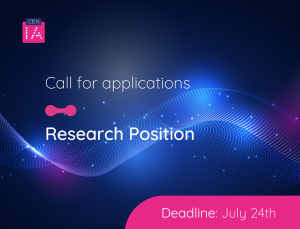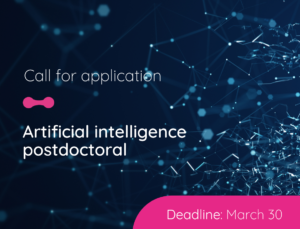
By: Álvaro Soto, director of the National Center for Artificial Intelligence
In my role as director of the National Center for Artificial Intelligence (CENIA), over the past few weeks I have received an avalanche of requests for opinions on the application of the moment: Chat GPT. To my regret, 99.9% of these interviews have focused on whether machines will replace us, whether that letter or censorship is a tombstone for AI, or whether machines will have feelings.
While some of these issues are relevant, in my opinion, the fatalistic scenario of us versus machines is far from reality. The truth is that applications such as Chat-GPT are machines and, therefore, tools that, as historically, are at the disposal of people. Understanding this limit and the basis of their operation is essential if we want to take advantage of the benefits of this new technology and correctly regulate its potential misuse. In particular, in this column, my interest is to contribute with a vision on the benefits of this new technological tool.
For that, we must go back to the end of the 80’s, at the beginning of the massification of the personal computers. At that time, I was a university student and I remember that the professor was a kind of divinity, since he was the mediator between my interest in learning and a knowledge that was extremely complex to access: basically the alternatives were him or an obscure book difficult to find. The good news is that thanks to computers we entered the information age which, with the internet as its most outstanding exponent, placed knowledge just a few clicks away. However, having the possibility of accessing knowledge does not imply that you can find what you are looking for or need, especially when we have mountains of information everywhere.
In this scenario, in 1996, Larry Page and Sergey Brin, invented a technique called PageRank that facilitated this access. Based on it, they built an empire: Google. However, as we have all experienced, this technology can be very frustrating, especially if we want to interact with it to guide a search.
In a parallel thread of history, AI researchers found in machine learning an excellent ally to develop machines with cognitive capabilities. “If you want to develop a face recognizer, show the computer hundreds or thousands of images of faces and as many images without faces and the machine will acquire that capability.” Why so many images? because basically I can’t explain to the computer what a face is, so I do it by showing many, many examples, hopefully as many as possible.
Following this path, by learning with millions of millions of text sequences, in an area called “language model learning”, GPT (the technology behind Chat-GPT) emerged, achieving the unthinkable and by far the most powerful of this technology: it learned to “understand” language. In the process, it “read” millions of documents that we can now consult interactively using natural language. And not only that, since it achieved an understanding of the language, to develop a face recognizer now I don’t need to show thousands of examples, I just need to “explain” to the machine what I need “Oh boy!”
What does this imply? First of all, a new super powerful tool to access great sources of knowledge, which makes PageRank seem very rudimentary. As a sample, a couple of buttons: “GPT, can you find an email I sent 2 months ago to my daughter, it was about our pet”; “GPT: can you tell me if the patient’s blood test results show yara yara…”, I guess you get the idea.
In the very, very near future, these new virtual assistants will revolutionize our work environments, educational environments, and I think everything that comes to mind. Likewise, new machines will change our domestic and social environments: “GPT-Robot don’t forget to do the dishes.” Perhaps what is most revolutionary is that this technology will impact the very fibers of technological development: our scientific methods, by providing the scientific community with a tool for exploration that will greatly accelerate new discoveries.
500 million years ago something amazing happened: the Cambrian explosion. In a fraction of the history of time, most of the animal families we know today were formed. One hypothesis suggests that the enabling factor was the development of the visual system, which allowed animals to perceive their environment, and thus to explore and understand the world. In the coming years we will witness a Cambrian explosion in our technological environment with the emergence of a vast and diverse range of new tools with advanced AI, which if handled correctly, will significantly empower humans.
What about the ethical debate? It is more crucial than ever. In their current state, machines like Chat-GPT are amazing at handling knowledge, yet they are unable to distinguish between right and wrong, danger or no danger. Thus, for AI scientists, our great challenge is to develop techniques that allow us to understand in depth and align the behavior of these machines with human values. For our authorities, the great challenge is to understand the scope of this technology and, accordingly, to regulate its negative effects, so that, as it should be, these new tools are at the service of people, contributing to improve the quality of life of our society and individuals.







